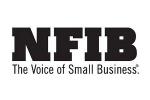CHICAGO — While it’s a good idea for small businesses — like most dry cleaners — to use the services of a tax professional, owners who educate themselves on tax matters might be able to ask the right questions to get deductions that might otherwise go unclaimed.
During an online presentation hosted by SCORE, Barbara Weltman went over some of these items that small-business owners should be aware of as 2023 comes to a close, and offered ideas to take advantage of new opportunities coming in 2024.
“I appreciate that taxes are not anybody’s favorite topic,” says Weltman, who is an attorney and author, specializing in matters pertaining to small businesses and entrepreneurs, and serves on the advisory board of the Small Business & Entrepreneurship Council. “However, taxes are so important because it’s really the difference between what you earn and what you keep.”
One of the difficulties that comes with taxes, Weltman says, it that the code is built on ever-shifting sands.
“Tax rules are continually changing due to legislation, court cases, IRS pronouncements…,” she says, “so things that you may have done last year might have changed this year. Knowing what the tax rules are, though, helps you make tax-savvy decisions for your business, and it also helps you ask better questions for your tax advisor. This will save some time and billable hours by really homing in on the right questions.”
Weltman pointed out that her presentation was for information purposes only, and that owners should consult with their professional tax advisor or accountants before acting on any of the information presented.
Tax Credits in Hiring
Employers should certainly look for any tax advantage they have when it comes to hiring, Weltman says.
“Many businesses are looking to hire now,” she says, “and we know it’s a tight labor market, with very low unemployment rates. And I know from monthly surveys from NFIB (National Federation of Independent Business) that this is a big challenge for many small businesses. After all, you’re competing in the workplace with large companies, many of which can offer greater pay and more benefits. So, I think small businesses have to find ways to make their offerings attractive.”
When it comes to hiring, the IRS offers the “Work Opportunity” Credit — up to 40% of first-year wages, in some cases — for hiring workers from certain targeted groups. These credits include hiring people who have been unemployed for more than 26 weeks and collecting benefits, veterans, ex-felons, and others (full details can be found on IRS Form 5884).
“The critical thing is that you must submit an IRS form to your state workforce agency within 28 days of employment starting,” Weltman says. “The state will then verify whether the worker qualifies as belonging to one of these target groups. So, make sure that you submit the form so that you get the credit that you’re entitled to.”
Employee Retention Credits (ERC) Issues
Weltman offered some good news and some bad news about the Employee Retention Credits (ERC) program, which began during the pandemic.
“The credit basically ended at the end of September 2021, or the end of the year for startups,” she says. The good news? “It’s still not too late to file amended returns to claim the credits.”
The ERC generally applies to wages paid through Sept. 30, 2021. Weltman says that employers can claim the credit until April 15, 2024, by filing amended returns for Q2, Q3 and Q4 of 2020. They have until April 15, 2025, to file for all quarters of 2021.
The bad news? Because there was such a rush of companies Weltman calls “ERC mills,” where the promoters would take a cut of the recovery without verifying that the employer was actually eligible for the credit, the IRS has put a moratorium on issuing any refunds. Also, those who have received credits might expect an audit in the future.
“I’ve had people talk to me and say, ‘My CPA said I don’t qualify, but this promoter says I do,’” Weltman says. “I tell them to listen to their CPA.”
For those who might be having second thoughts about the ERC strategy, Weltman pointed out that there is a way out.
“The IRS has recently created a withdrawal process, so anybody who jumped onto the promoter wagon can now withdraw a claim, with no penalty, no foul, no audit. So that’s something to certainly pay attention to.”
Come back Tuesday for Part 2 of this series, where we’ll look at the tax ramifications of two of the most popular employee benefits companies can offer — health insurance and retirement plans.
Have a question or comment? E-mail our editor Dave Davis at [email protected].





























